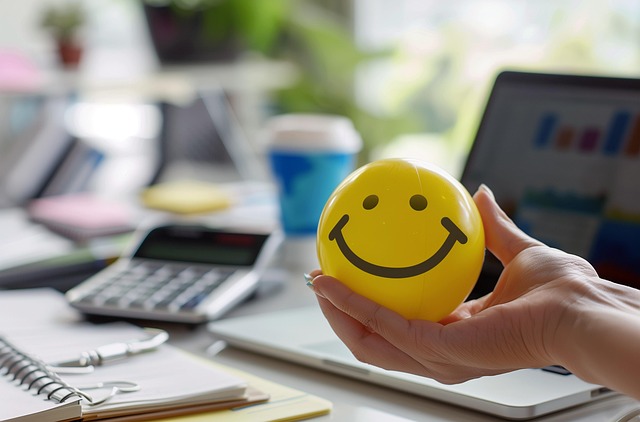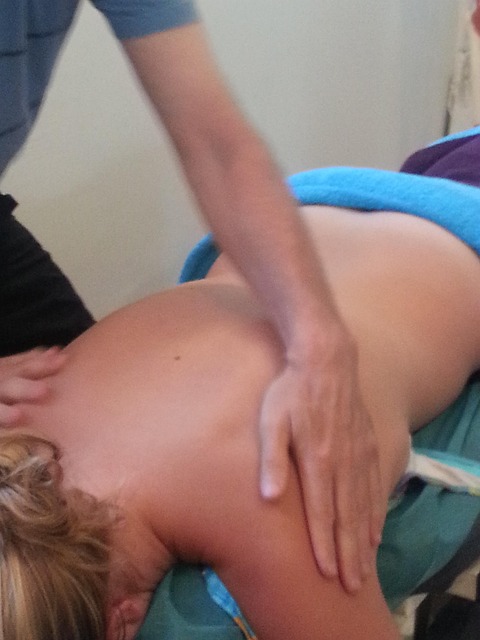Stress relief therapy offers a holistic approach to managing chronic stress by addressing thought patterns and teaching effective coping strategies. Techniques like CBT, MBSR, mindfulness meditation, and deep breathing empower individuals to respond calmly to stressors, boosting resilience and mental well-being. Combining these therapies with physical activity and lifestyle changes provides powerful tools for stress management, enabling people to take control of their mental health.
Stress is a prevalent modern-day issue, impacting mental health and overall well-being. This article explores effective strategies for managing stress through various therapeutic approaches. We delve into understanding the root causes of stress and its effects on the mind. Discover different types of therapy, including Cognitive Behavioral Therapy (CBT) and mindfulness techniques. Learn about the power of physical activity and lifestyle adjustments in reducing stress levels. Additionally, guidance on finding the right therapist offers a comprehensive path to achieving lasting stress relief.
Understanding Stress and Its Impact on Mental Health

Stress is a normal part of life, but chronic or prolonged stress can have significant impacts on mental health. It’s important to understand that stress isn’t always negative; acute stress, often referred to as eustress, can be beneficial, triggering a ‘fight or flight’ response that prepares us for challenges. However, when stress becomes persistent and overwhelming, it shifts into distress, leading to various mental health issues such as anxiety, depression, and insomnia. This is where stress relief therapy steps in, offering effective tools and strategies to manage and reduce chronic stress levels.
Through stress relief therapy, individuals learn to recognize and challenge unhelpful thought patterns and behaviors that contribute to elevated stress. Techniques like mindfulness meditation, cognitive behavioral therapy (CBT), and deep breathing exercises are often employed. These practices help people gain a deeper understanding of their triggers and teach them how to respond rather than react to stressful situations, fostering resilience and promoting better mental well-being.
Exploring Different Types of Therapy for Stress Relief

Stress relief therapy is a diverse field, offering various approaches tailored to individual needs. One popular method is cognitive-behavioural therapy (CBT), which focuses on identifying and changing negative thought patterns and behaviours contributing to stress. CBT empowers individuals with coping strategies to manage stress effectively.
Another effective approach is mindfulness-based stress reduction (MBSR). This therapy teaches present-moment awareness and non-judgmental acceptance of thoughts and feelings, helping individuals develop a calmer mindset. MBSR incorporates meditation, body scans, and yoga to promote relaxation and reduce stress responses. Exploring these and other therapeutic options can lead to significant improvements in overall well-being and stress management.
Cognitive Behavioral Therapy (CBT): A Step-by-Step Guide

Cognitive Behavioral Therapy (CBT) is a highly effective stress relief therapy that focuses on identifying and changing negative thought patterns and behaviors. It works by helping individuals understand the connection between their thoughts, feelings, and actions. In CBT, you’ll work with a therapist to challenge and replace unhelpful beliefs and thought processes, ultimately leading to improved emotional well-being and reduced stress levels.
The process typically involves several steps: first, identifying your specific stressors and triggers. Then, your therapist will help you recognize negative or distorted thinking patterns and convert them into more realistic and positive thoughts. You’ll learn relaxation techniques and coping strategies to manage stressful situations. Throughout the therapy, you’ll be encouraged to practice these new skills in daily life, gradually replacing old habits with healthier ones. Regular sessions will track progress and provide ongoing support until you’ve achieved lasting stress relief.
Mindfulness and Meditation Techniques for Daily Practice

Mindfulness and meditation are powerful tools for daily stress relief therapy. These practices encourage individuals to focus on the present moment, observing their thoughts and emotions without judgment. By cultivating a non-reactive mindset, one can reduce the negative impact of stressful situations. Incorporating mindfulness into daily routines allows people to pause, breathe, and reset, thereby minimizing the body’s stress response.
Meditation techniques vary but often involve guided imagery, deep breathing exercises, or simply observing one’s thoughts as they flow. Regular meditation practice has been shown to reduce anxiety, improve focus, and enhance overall well-being. Whether it’s a few minutes of quiet reflection each morning or a structured session at the end of the day, these mindfulness practices offer an accessible and effective stress relief therapy for anyone seeking to manage their mental health.
The Role of Physical Activity in Managing Stress Levels

Physical activity plays a pivotal role in managing and reducing stress levels, offering an effective complement to traditional stress relief therapy. Regular exercise triggers the release of endorphins, often referred to as ‘feel-good’ hormones, which can significantly improve mood and decrease feelings of anxiety and stress. This natural high promotes a sense of calm and well-being, providing an accessible and powerful tool for individuals seeking stress management strategies.
Beyond the emotional benefits, physical activity also distracts the mind from stressful thoughts, creating a mental break from daily pressures. Whether it’s a brisk walk, a yoga session, or a full workout at the gym, engaging in movement can help clear the mind and foster a sense of control over one’s stress response. This proactive approach to stress management not only enhances overall well-being but also empowers individuals to take charge of their mental health as part of their stress relief therapy regimen.
Lifestyle Changes for Better Stress Management

Stress is an inevitable part of life, but that doesn’t mean we have to succumb to it. Lifestyle changes play a pivotal role in stress management, complementing any form of therapy for stress relief. Simple adjustments can significantly reduce daily tension. Prioritizing regular exercise, for instance, releases endorphins that combat stress hormones and promote relaxation. A balanced diet supports overall well-being, enhancing your body’s ability to cope with stressful situations. Adequate sleep is another cornerstone; it allows your mind and body to recharge, fostering resilience against stress.
Furthermore, mindfulness practices like meditation or yoga can be powerful tools. They teach you to acknowledge and accept stress without reacting impulsively, promoting a sense of calm. Connecting with nature, whether through walks in the park or gardening, offers a peaceful escape from demanding routines. Building strong social connections is equally vital; sharing experiences and emotions with friends or support groups provides valuable stress relief, reminding us we’re not alone in navigating life’s challenges.
Seeking Professional Help: Finding the Right Therapist

When it comes to managing and reducing stress, seeking professional help through therapy can be a game-changer. Finding the right therapist is essential for effective stress relief as this specialized support can provide valuable tools and strategies tailored to your unique needs.
The world of therapy offers various approaches, from cognitive-behavioural therapy (CBT) to mindfulness practices. It’s important to consider your personal preferences, comfort levels, and the type of therapy that aligns with your goals. Researching different therapeutic methods and finding a therapist who specializes in stress relief can make all the difference. The right professional will create a safe space for you to explore and manage stressors, offering guidance and support throughout your journey towards better mental well-being.
